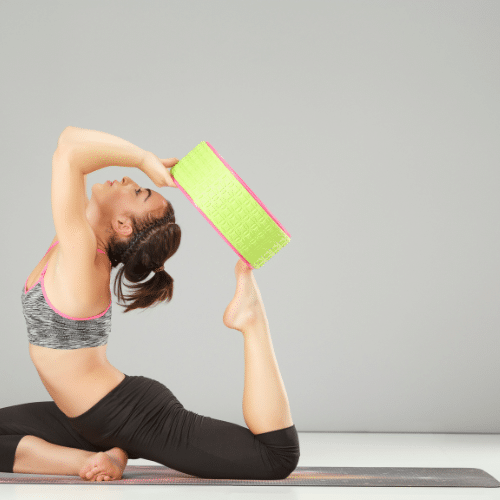Are you feeling overwhelmed and out of balance? Do you struggle to find time for yourself in the morning? If so, then a 5 minute morning meditation is the perfect way to start your day! Taking just a few minutes each day can help clear your mind and reduce stress. With these simple steps, even beginners can benefit from this calming practice. Let’s explore how to get started and why it’s worth your time.
Morning Meditation for Beginners: How to Get Started
Starting a morning meditation practice can be intimidating, but it doesn’t have to be. The key is to start small and commit to just five minutes of your time each day. Before you begin, take a few moments to sit comfortably with your eyes closed and your spine straight. Focus on your breath and allow the inhalations and exhalations to come naturally. Once you are settled, it’s time to start moving through the meditation.
Focus on each body part as you move from head to toe, allowing yourself to relax along the way. As you do this, acknowledge any feelings or thoughts that come up without judgment, then let them go. This simple practice will help clear your mind and bring focus throughout the day.
It’s also important to keep track of how you’re feeling before and after meditating by writing in a journal or documenting in some other way. That way, you’ll be able to see how far you’ve come over time and stay motivated in your practice. With just five minutes of dedicated effort each day, morning meditation can become an integral part of your daily routine!
Why You Should Take 5 Minutes Each Morning To Meditate
Taking five minutes each morning to meditate can be a powerful way to start your day. Not only is it great for calming the mind, but it can also help you to gain clarity and focus on what matters most. Plus, it’s a great way to get in touch with yourself and set an intention for the day.
Morning meditation helps you create positive habits which will carry over into your daily life. Studies have even found that people who practice mindfulness regularly are more likely to make healthier food choices and have improved mental well-being overall. If you’re feeling anxious or overwhelmed, taking just five minutes of your time each day can help you feel more relaxed and prepared for whatever comes next.
Plus, there’s no need to worry about having lots of experience or following complicated instructions. You don’t even need any special equipment – just find a comfortable spot where you won’t be disturbed, close your eyes, and focus on your breath as you relax into the practice. Try starting with just a 5 minute morning meditation and see how you feel.
Morning Meditation for Beginners: How to Get Started
Starting a morning meditation practice can be intimidating, but it doesn’t have to be. The key is to start small and commit to just five minutes of your time each day. Before you begin, take a few moments to sit comfortably with your eyes closed and your spine straight. Focus on your breath and allow the inhalations and exhalations to come naturally.
Once you are settled, it’s time to start moving through the meditation.
Focus on each body part as you move from head to toe, allowing yourself to relax. As you do this, acknowledge any feelings or thoughts that come up without judgment, then let them go. This simple practice will help clear your mind and bring focus throughout the day.
It’s also helpful to track how you feel before and after meditating by writing in a journal or documenting in another way. That way, you’ll be able to see how far you’ve come over time and stay motivated in your practice.
Why You Should Take 5 Minutes Each Morning To Meditate
Taking five minutes each morning to meditate can be a powerful way to start your day. Not only is it great for calming the mind, but it can also help you to gain clarity and focus on what matters most. Plus, it’s a great way to get in touch with yourself and set an intention for the day.
Meditating in the morning helps you create positive habits which will carry over into your daily life.
Studies have even found that people who practice mindfulness regularly are more likely to make healthier food choices and have improved mental well-being overall. If you’re feeling anxious or overwhelmed, taking just five minutes daily can help you feel more relaxed and prepared for whatever comes next.
Plus, there’s no need to worry about having lots of experience or following complicated instructions. You don’t need any special equipment – just find a comfortable spot where you won’t be disturbed, close your eyes, and focus on your breath as you relax into the practice.
Clearing the Obstacles to Morning Meditation
While it’s easy to understand the benefits of a 5 minute morning meditation, it’s no surprise that many have trouble. Let’s look at obstacles that can hinder your morning meditation routine and how to conquer them.
1. “I don’t have time.” – Taking time out of your morning to meditate can feel like a sacrifice, but it doesn’t have to be. Start small and commit to just five minutes each day. You’ll be surprised at how quickly it becomes part of your routine.
2. “I can’t sit still.” – Meditation does not have to involve sitting still for long periods. You can also practice walking or moving meditation, focusing on the sensation of movement and the surrounding environment.
3. “I don’t know what I’m doing.” – The good news is that you don’t need any special equipment or instruction to start morning meditations. Find a comfortable spot, close your eyes, and focus on your breath.
4. “My mind never stops.” –No matter how active your mind is, it’s important to remember that you don’t need to clear your mind to meditate. The goal of meditation is simply to be present and aware of your thoughts without judgment. If your mind starts to wander, just bring your focus back to the present moment by taking a few deep breaths.
Setting an intention for each session before you start can also be helpful. This could be something like “I am open and receptive” or “I choose peace and acceptance.” Remind yourself of this intention when distractions arise during meditation and return to the present moment.
Finally, if you struggle with the practice altogether, try experimenting with different techniques such as guided meditations, mantra chanting, and visualization.
By taking just five minutes each morning to practice meditation, you can start your day off with more clarity and focus. And if you’re feeling overwhelmed or anxious, taking that time for yourself can be a powerful antidote. So why not give it a try? You may be surprised at the results!
Starting A Meditation Journal
A meditation journal can be a great way to keep track of your practice and reflect on your experiences. It’s also an opportunity to record any insights or revelations that may come up during your meditations. Writing things down has a way of helping us process our thoughts and feelings in a more profound, more meaningful way.
Start by getting yourself a notebook – something you love and will want to use every day. Then, each time you meditate, take some time afterward to jot down any thoughts or observations you had during the session. This could include anything from the physical sensations you experienced to the emotions that arose during the meditation.
Journaling is also a great way to keep track of progress over time and gain insight into patterns in your thinking and behavior. You might notice specific themes emerging as you write, which can help provide clarity around what’s important in your life.
The key is approaching it with an open mind – there’s no right or wrong way to do it! Ultimately, the goal is simply to create space for reflection and self-awareness so that we can grow and evolve in our practice.
Wrapping Up
Meditating in the morning can be an incredibly valuable way to start your day. Even if it’s only for five minutes, you can use that time to cultivate a sense of peace and well-being before the chaos of the day takes over. It doesn’t have to be complicated either – just find a comfortable spot, close your eyes, and focus on your breath. If distractions arise during meditation, simply acknowledge them and bring your focus back to the present moment.
You can also take your practice further by keeping a meditation journal. After each session, take some time to jot down any thoughts or observations that arose during the session. This could include anything from physical sensations to emotions or insights you might have had. Writing things down can help us gain clarity and insight into our thinking and behavior, as well as track progress over time.









